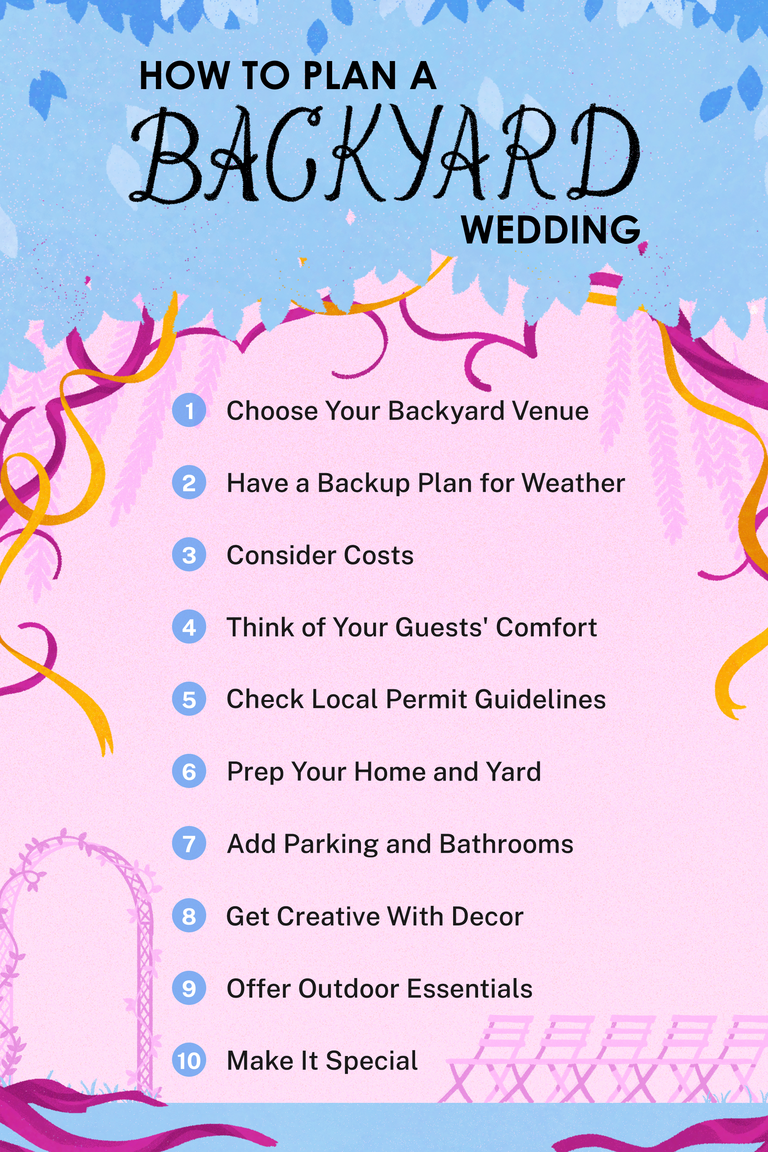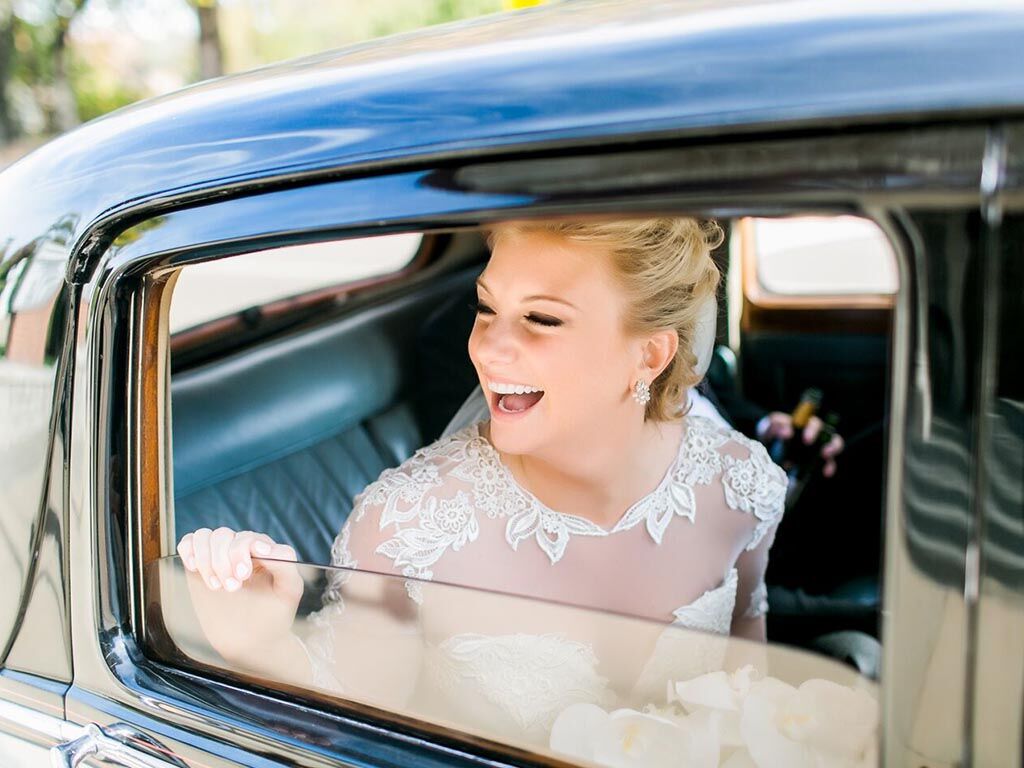How to Plan a Backyard Wedding, From an Expert Planner

If you're looking for a cozy wedding in a place that's familiar or sentimental, then you might want a backyard event. We've rounded up some considerations on how to plan a backyard wedding, from costs to weather. We spoke with Jyl Deering, a wedding planner from Deering Events, on what to know before planning your big day. A backyard wedding is really any event hosted at a home, and it can be at a variety of spaces, like your family home or a local historic house. If you want to know how to plan an affordable wedding, this is one of many great choices that offer you creativity and freedom while still celebrating your love story. Let's take a look at some backyard wedding ideas to help get the ball rolling on your special day.

1. Choose Your Backyard Venue
Whether you want to throw your event in your own (or a loved one's) backyard, at an Airbnb or at a venue that has a backyard vibe (a historic home, for example), it's essential to find the right backyard venue for your needs. The Knot Vendor Marketplace even makes it easy to filter venues by backyard-style spaces, so you have that cozy feel you're looking for. One great benefit of a backyard event at a private home is getting to choose the date you want and have creative freedom for your day, but booking a more traditional wedding venue with a backyard vibe offers plenty of amenities and, often, less planning stress (especially if it's an all-inclusive venue).
2. Have a Backup Plan for Weather
Rain or shine, you want to be sure you have every type of weather covered for your backyard wedding. Consider an indoor ceremony or reception space that can be used as a backup plan at this home or venue, or even adding a tent to warm things up during a winter soiree is a good idea. Maybe there's a barn or gazebo onsite that you can use as well.
3. Consider Costs
You're probably wondering how much a backyard wedding costs, especially in comparison to a venue wedding. Deering says, "I tend to find people think a backyard wedding is less expensive than a venue, and I see them about the same, if not running more than venues. Again, it's building the "venue" truly, with things like power and bathrooms, that add up the costs." Just be mindful of these expenses and your budget when planning your day. Deering adds, "That determines a great deal about the size of the tent, how many rentals (tables, chairs) you need."
4. Think of Your Guests' Comfort
Do you have spots where your guests can step away from the heat or cold outside? Or maybe you want a special area for the kids to play. Deering recommends even spreading out events through the weekend, saying, "I always say that it's better to host at your house the night before or after the wedding. Less stress for the home owners on such a big day!"



5. Check Local Permit Guidelines
Do you need a permit for a backyard wedding? In short, check your local guidelines and consider neighbors and HOAs when planning a backyard wedding. There may be certain limitations for noise ordinances or even HOA Rules that restrict loud music, long events and parking. A smaller guest list might help to take some of these concerns away.
6. Prep Your Home and Yard
Deering has some recommendations for preparing your backyard venue for the big day. She says to consider "landscaping of the property pre-wedding and also [think of] the wear/tear on the yard during the wedding, [and adding] power supply off the house (rent generators)" to ensure you and your guests are comfortable without any issues. Because of these considerations, a backyard wedding will often require different vendors, so be sure to do your research ahead of time.
7. Add Parking and Bathrooms
One thing you need to add during this event is plenty of parking and bathrooms. Check out your space ahead of time to ensure everyone will have a place to park, or if the venue offers transportation. You can also rent elegant bathroom spaces if there aren't enough for the bounty of guests at your wedding.
8. Get Creative With Decor
One benefit of a backyard wedding that we love is that you can get creative with your decor, and maybe even let the home and the land serve as a beautiful backdrop. String lights make everything more magical, and you can hang floral arrangements from a tent's ceiling for a beautiful display. Maybe you also want to bring flowers from your own garden as centerpieces or bouquets. The options truly are limitless.
9. Offer Outdoor Essentials
Depending on the season, you might want to provide outdoor wedding essentials, like bug spray, for your guests. You should also provide plenty of trash receptacles so things don't get messy. Other fun options include blankets for fall or winter weddings, flip flops as a summer wedding favor and fire pits to make s'mores and warm up.
10. Make It Special
Simply put, a backyard wedding is a chance to truly make the day yours. You can make it a potluck to make it more intimate and sentimental, or even host a fireworks show at the end of the night. Deering also adds, "Most times, you can purchase your own alcohol and have someone serve it. You [have] more say in picking your own food. Sentimentality is key. The photos and stories you will have for a lifetime and memories of it being at your home is why most people do it."




















